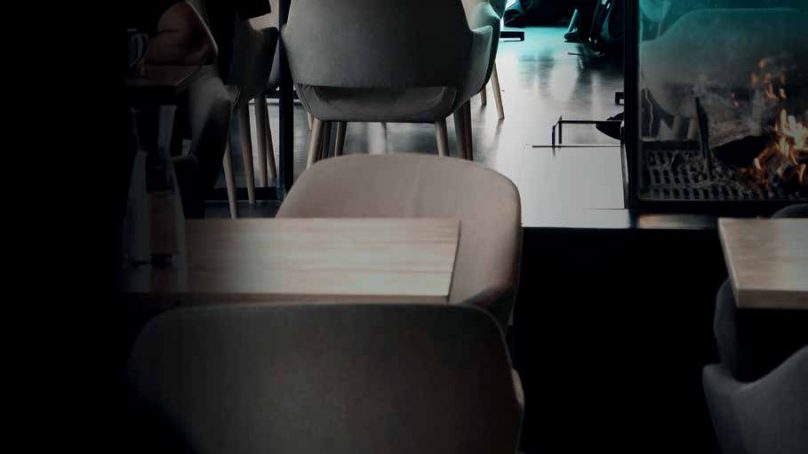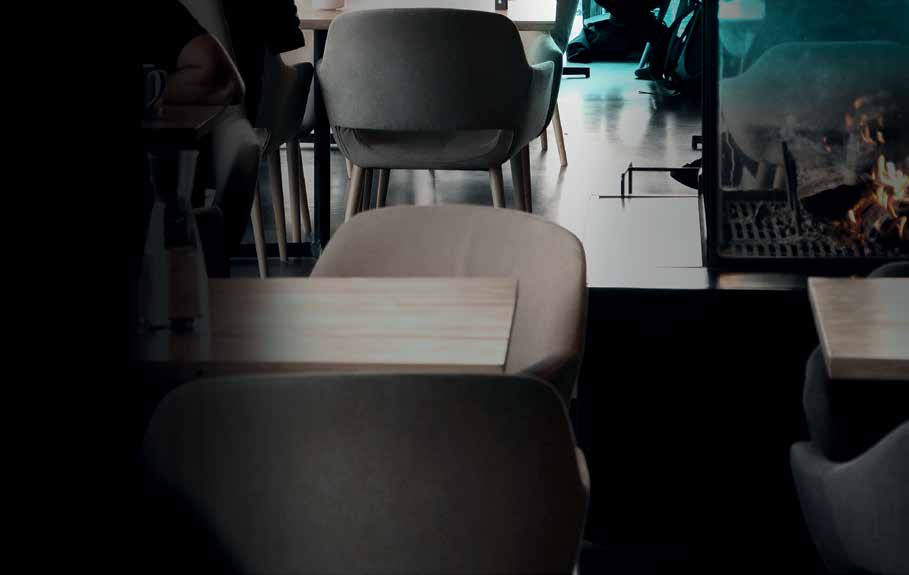

It is widely believed that Covid-19 is largely spread when people are in direct contact with someone who has the virus. When infected people cough, sneeze, sing, talk, exhale smoke or breathe, they produce respiratory droplets which can land on surfaces and objects. Although it is less common, it is also possible to contract the coronavirus by touching a contaminated surface.
Fortunately, there are certain measures restaurant and bar operators can take to help lower the transmission of Covid-19 among staff and customers. It is important to note that to this day, there is no evidence to suggest that people can catch the coronavirus from food. Indeed, Covid-19 can be killed at temperatures similar to that of other known viruses and bacteria found in food.
1. Automated temperature check
The TAURI temperature-check tablet has a number of features that make it an excellent choice for operators. Its automated design eliminates the need to assign a member of staff to perform temperature checks. Furthermore, it can screen around 30 individuals per minute and can be used indoors or outdoors in different weather conditions. As well as reading body temperature, the system can also check if the user is wearing a mask.
2. One-way spatial streaming
This technique ensures that no two individuals are face to face at any point while walking around the restaurant or bar. Posting signs and messages helps circulate traffic in one direction.
3. Compulsory masks
Business owners can stipulate that all employees wear face masks. The mandatory use of face masks can also extend to clients, especially when they arrive and walk around the establishment. In some Asian countries, customers are being provided with zip-lock bags to properly safeguard their masks rather than placing them on the table and potentially transmit bacteria.
4. Employee hygiene
There are a number of measures employers can take to ensure increased safety and hygiene among their employees. These include screening employees before they start work, encouraging them to stand 2 meters apart and making sure they regularly wash their hands, sanitize and use a fresh pair of gloves for each order (if applicable).
5. Strategically placed disinfectants
It is important that sanitizers and disinfectants are placed near door knobs, on tables and other high-risk areas. Signs in highly visible locations can promote everyday protective measures helping to limit the spread of the virus.
6. Limit sharing plates and cutlery
Restaurants and bars can do a lot to discourage the sharing of dishes. This may involve menu adjustments, like removing sharing plate options and group appetizers. In addition, establishments should avoid placing reusable condiments on the table, such as ketchup and mustard. Many restaurants have introduced digital menus that can be viewed by scanning a QR code. These menus are not only safer, they are also more environmentally friendly.
7. Go contactless
It goes without saying that clients and employees should limit contact with commonly touched surfaces or items. Therefore, some businesses have implemented the strict use of contactless payment methods and non-cash transactions only. Non-contact delivery is now available on apps to limit transmission. Before the order goes out, stringent procedures should be in place in the kitchen on how to safely package food for delivery.
8. Modified layouts
Restaurateurs need to adjust their restaurant and bar layouts to ensure that all customers are spaced apart by removing tables, stools and other furniture. Installing physical barriers, such as sneeze guards and partitions, is also worth considering, particularly in areas where it is difficult for individuals to remain 2 meters apart. Barriers can be useful in kitchens and at cash registers.
9. Ventilation systems and new technology
In general, being outdoors and in well ventilated spaces reduces the risk of exposure to the virus. Therefore, restaurants need to consider improving their engineering controls by consulting with experienced HVAC professionals. A pilot study conducted by Yum Brands and Columbia University will test the effectiveness of far-UVC technology in neutralizing viruses. Trials will take place in a Taco Bell branch during non-operating hours. Elsewhere, Magnolia Bakery in New York has turned to ultraviolet light to kill viruses.
10. Track and trace apps
Several countries have developed their own track and trace mobile apps that allow users to connect with nearby devices. If an app user later shares a positive coronavirus test result, a notification will be received by those who were within close proximity. Hospitality venues should encourage the use of track and trace by display posters with a QR code, which customers can scan upon entering the premises.

Gebran N. Bekhazi,
Managing partner of The Food Studio














